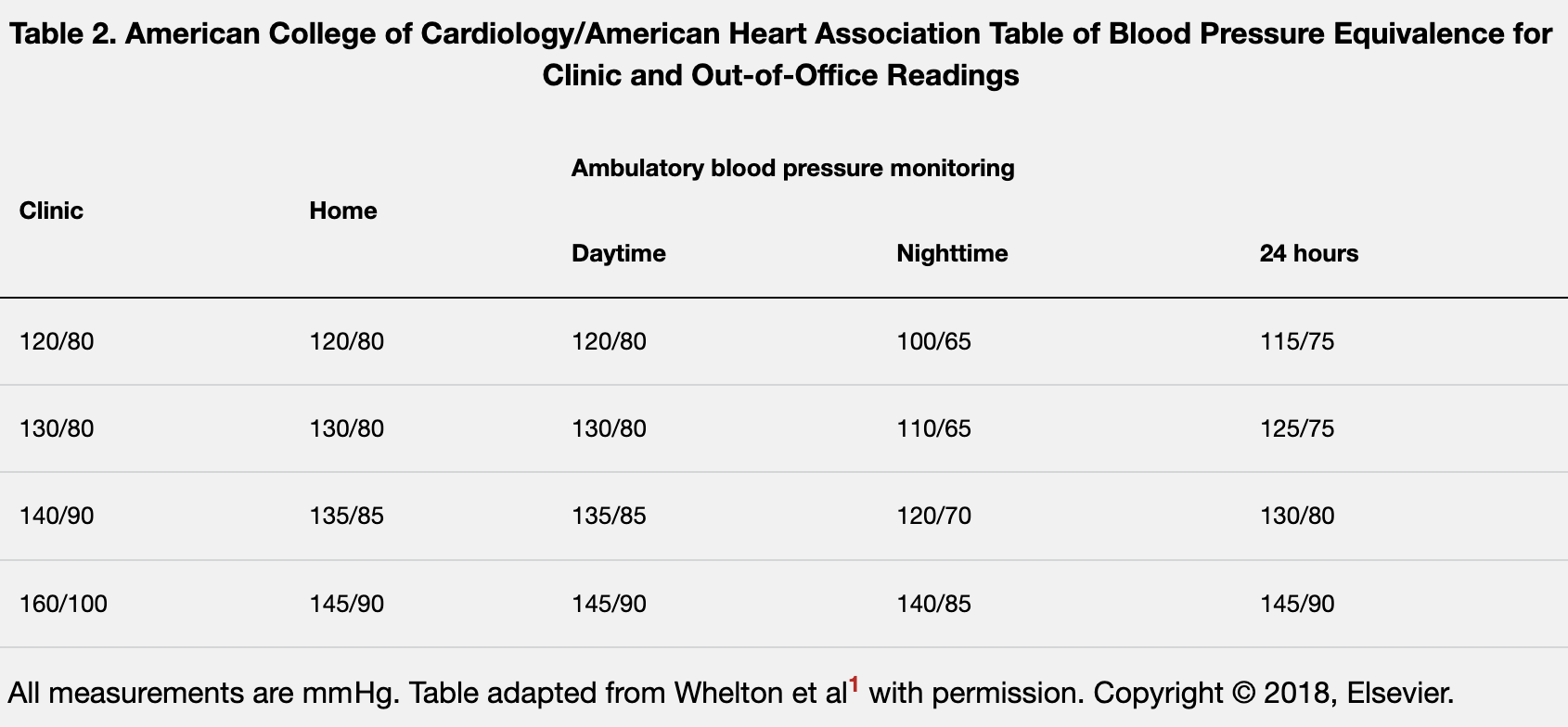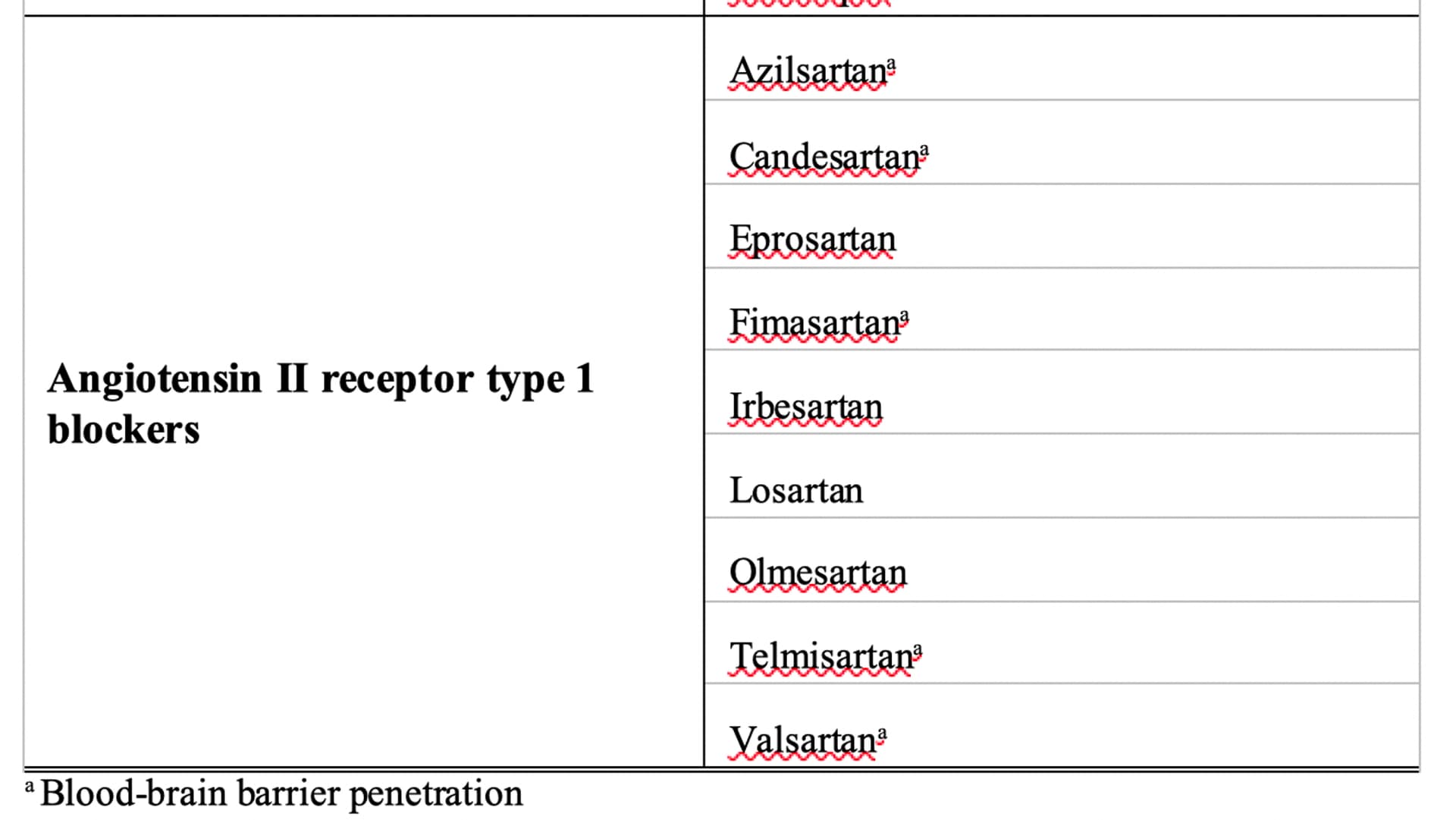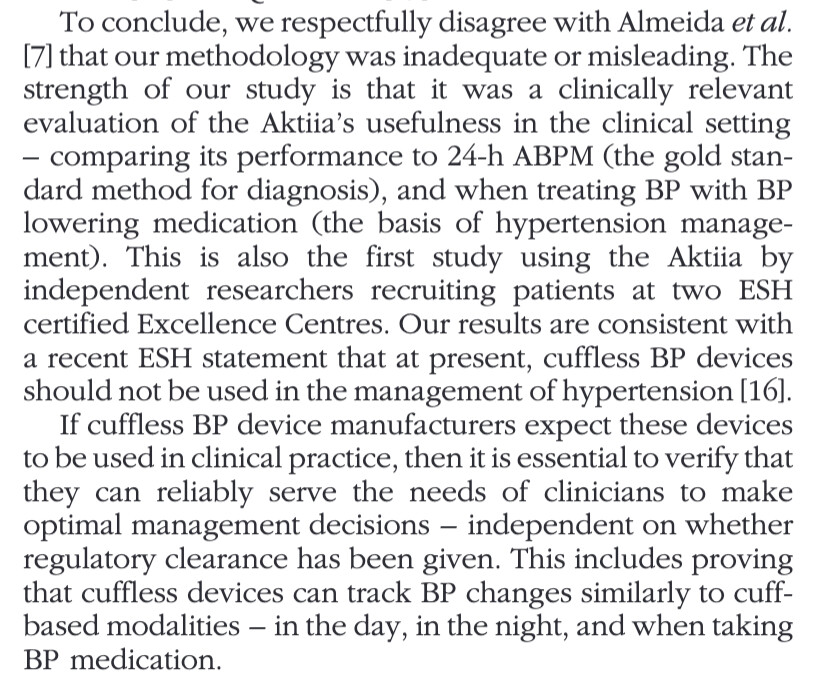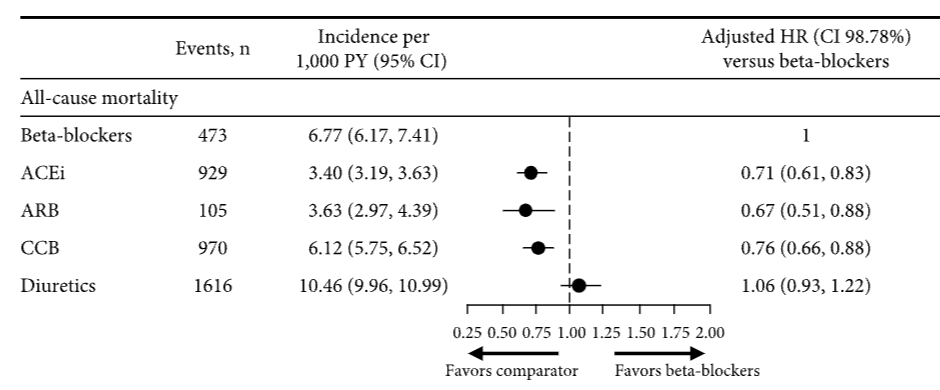I’m on 20 mg telmisartan, but take only half of it each night (as an addition to amlodipine 2.5 mg and labetalol 50 mg). I measure potassium and sodium once per month - both are in a normal range and didn’t become higher with addition of telmisartan.
I take 80 mg Telmisartan daily (Marfan - not for BP reduction). No significant effect, except that the progression of the ascending aortic aneurysm is virtually halted.
I don’t take any ARBs (for now), but I looked at them as I think way more people could take anti-hypertensive, but the practice varies a lot between countries and doctors due to different national guidelines and the lack of a user-friendly continuous blood pressure monitor. There’s also no equivalent of Hb A1c for blood pressure that would give you the average over the past 3 months with a simple blood test.
Regarding local guidelines: “Americans are advised to start antihypertensive treatment at the levels of 130/80 mmHg, while Europeans at the level of 140/90 mmHg” (American, European and international hypertension guidelines: Time to shake hands? 2021)
Regarding measurements, here are the differences between values taken at the doctor (“Clinic”), by yourself at home, or with a 24h BP monitor: Harmonization of the American College of Cardiology/American Heart Association and European Society of Cardiology/European Society of Hypertension Blood Pressure/Hypertension Guidelines: Comparisons, Reflections, and Recommendations
It’s terrible because “For every 20mmHg increase in systolic blood pressure above normal your risk of dying from a heart attack or stroke doubles.” ( https://twitter.com/Paddy_Barrett/status/1579019655783813120 )
If your doctor doesn’t prescribe a 24-hour BP check and/or if you live in Europe, you might not get the treatment you deserve.
Then, among anti-hypertensive, I would not take beta-blockers (those ending in “-olol”) as they’re consistently linked to a higher rate of Parkinson’s disease, study after study: Nonselective beta-adrenoceptor blocker use and risk of Parkinson’s disease: from multiple real-world evidence. There are so many alternative anti-hypertensives: why take the risk? (especially if you have a family history of Parkinson’s or other neurological diseases)
In particular, according to this paper, “antihypertensive medications that stimulate vs inhibit type 2 and 4 angiotensin II receptors may result in a lower risk of incident dementia” (Association of New Use of Antihypertensives That Stimulate vs Inhibit Type 2 and 4 Angiotensin II Receptors With Dementia Among Medicare Beneficiaries).
Among them, ARBs (“sartans”) seem especially good. This paper (see Table 2) gives a summary of their potential: The Different Therapeutic Choices with ARBs. Which One to Give? When? Why?
It might be better to prefer ARBs that cross the blood-brain barrier (source):
Telmisartan is also unique in its ability to reduce fasting plasma glucose and increase adiponectin and insulin sensitivity (in addition to its anti-hypertensive properties):
- “Telmisartan can better improve IR compared with other ARBs.” (Telmisartan Improves Insulin Resistance: A Meta-Analysis 2018)
- Telmisartan is the most effective ARB to increase adiponectin via PPARα in adipocytes 2022
No wonder telmisartan is being tested in the ITP!
(The newer azilsartan seems to have insulin-sensitizing effects as well)
I am inadvertently a canary in the coal mine. I have been taking Telmisartan with atorvastatin for approx. 2 years. Nothing that I can report, other than Telmisartan keeps my blood pressure in the range that I am comfortable with. But it’s always a pleasant surprise to find something that I am already taking may have life extension benefits. As I have reported earlier I use atorvastatin because it was the first statin that I tried that didn’t produce unwelcome side effects.
Thanks, I wasn’t aware of the link between beta blockers and PD. Still it will be interesting to see what the ITP finds for nebivolol.
I have been taking Telmisartan with atorvastatin for approx. 2 years.
Is there evidence that telmisartan and atorvastatin have any special synergy?
Found this old post: Blood pressure drugs could prevent type 2 diabetes, study finds
“Researchers also investigated the effects of five major types of blood pressure drugs from 22 clinical trials compared with a placebo. They found angiotensin-converting enzyme (ACE) inhibitors and angiotensin II receptor blockers (ARBs) had the strongest protective effect, both reducing someone’s relative risk of developing diabetes by 16%.”
Thanks for this info. I use the Aktiia blood pressure monitor which measures BP 24/7 non-inflationary at the wrist.
They just released a new updated version in the UK, people can use a forwarding service to get it, if app is found in their local app / google play store.
Thanks for the advice; it looks amazing; how accurate is it? The reviews are extremely bad, especially many reviews mention a 10–15 mm Hg difference between Aktiia and their traditional BP inflatable cuff:
I dug more, almost all research papers on Aktiia are conducted by… Aktiia. One recent exception is Evaluation of the ability of a commercially available cuffless wearable device to track blood pressure changes. They found that the daytime average found by Aktiia was correct but that the night-time one was significantly off (+15.5 mmHg). They concluded: “This cuffless wearable device did not accurately track night-time BP decline and results suggested it was unable to track medication-induced BP changes.”
Aktiia answered: Inadequate study designs for the evaluation of blood pressure monitoring devices and their potential misleading conclusions - PMC
I find their answer unconvincing… They even “agree with the results showing that the nighttime dip measured by Aktiia was significantly smaller compared to ABPM”
The researchers answered to Aktiia: Reply to ‘Inadequate study designs for the evaluation of blood pressure monitoring devices and their potential misleading conclusions’:
Still, I’m tempted to buy one… At least the above paper shows that the daytime average is correct and it’s good to know that night-time values are probably overstated.
[EDIT: Peter Attia is bullish on it though: Peter Attia Is Bullish on Aktiia's Continuous Blood Pressure Monitor - PodClips ]
[EDIT2: Eric Topol as well: A continuous blood pressure monitoring bracelet ]
[EDIT3: Bought it, I’ll report after I get it and test it…]
0.45±7.75 systolic and 0.38±6.86 diastolic.
I cannot do any other BP measurement than 24/7 even though it might be slightly less accurate, I think regular cuffs have about the same accuracy as Aktiia. Impossible to get data at night, continuously measuring BP to get as many datapoints with dubious accuracy at daytime as well, would be a grind.
Make sure it is the new version that is water proof etc, I bought just before the announcement and all of the fixes they mention were something I noticed was a problem.
Yes, I bought the “NEW Aktiia 24/7 Blood Pressure Monitor - Medium” but I have no idea when it will be delivered… (It says: “Your pre-order has been received. You will be automatically charged for your order via your selected payment method when your pre-order is released on at a future date.”)
Are you taking an anti-hypertensive drug? If yes, have you noticed a difference in your BP variability and, in particular, in your night-time patterns?
It looks like telmisartan is also better at “smoothing” BP fluctuations, especially at night: Effect of telmisartan vs. ramipril on ‘dipping’ status and blood pressure variability: pooled analysis of the PRISMA studies
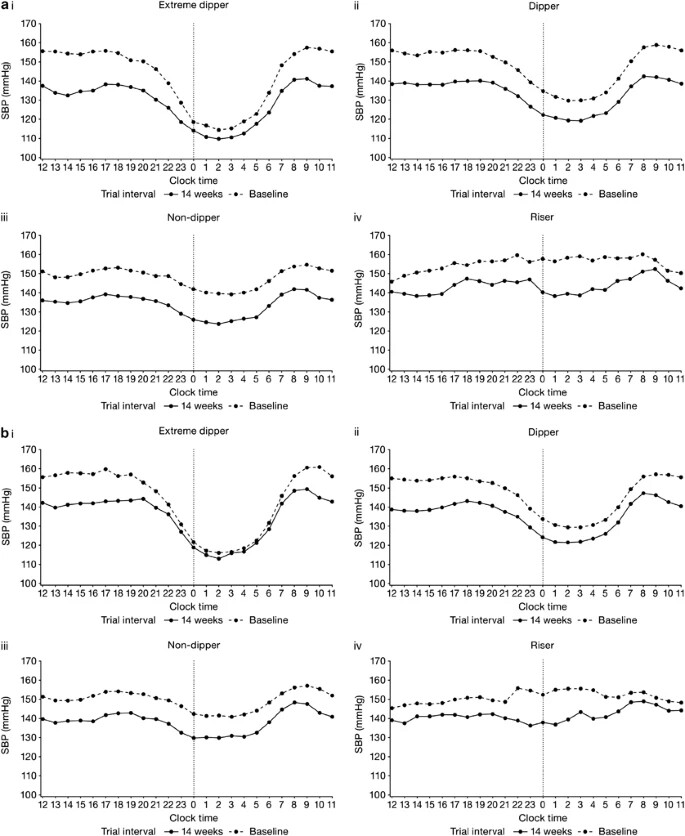
According to these papers, CCBs are best for BPV reduction:
- Effect of antihypertensive treatment on 24-h blood pressure variability: pooled individual data analysis of ambulatory blood pressure monitoring studies based on olmesartan mono or combination treatment: “The largest reduction of BPV with treatment was observed in our study in patients taking a two or three drug combination treatment, particularly those combinations including a long-acting ARB (olmesartan) and a dihydropyridine calcium-channel blocker (amlodipine or azelnidipine) and/or a thiazide diuretic (hydrochlorothiazide). Such a result could be expected as consistent with literature reporting calcium-channel blockers, mainly belonging to the dihydropyridine class, as the most effective antihypertensive agents in reducing BPV, whereas ARBs and ACE inhibitors (the prevalent drug classes included in the monotherapy group of our study), have a modest effect on this parameter [11,41–43].”
- Blood Pressure Variability and Therapeutic Implications in Hypertension and Cardiovascular Diseases: “Despite most first-line antihypertensive medications contribute to reduce both short and long term BPV, calcium channel blockers (CCBs) as monotherapy or fixed-combination therapy appear to be the most effective on BPV control.”
Nope, I haven’t tried an anti-hypertensive drug yet, still working on lifestyle changes and optimizing lipids. But I will def work on BP if lifestyle isn’t enough which I don’t think it will.
Thanks. Please report the results of your tests. I’m super interested in seeing the impact of lifestyle changes and drugs on the Aktiia charts.
Looks like the Apple Watch 10, expected for Sept 2024, will have a BP monitor: Apple Watch Plans Hypertension, Sleep Apnea Detection, Other Health Updates - Bloomberg
However, “This sensor will not offer exact numbers the same way the cuff in a doctor’s office does, but it can detect changes and, importantly, elevations in blood pressure” ( New Apple Watch will detect blood pressure and sleep apnea: Report ). Hopefully, in a few years, the Apple Watch will measure both BP and glucose continuously ![]()
I use Aktiia for over a month and I am quite happy with accuracy if not with not being waterproof and very uncomfortable and hard to adjust band (it needs accurate adjustment to be able to measure your BP, it wont measure it if it is too tight or too loose).
I explained in another post that I was testing its optical sensor accuracy with measuring with cuff at the same time and I got results within few points difference, which is good enough IMO.
I am not taking any antihypertensive drugs but sometimes take beta-blocker propranolol for my headache and since it lowers BP this was measured by Aktiia as well and it was measured in the same quantity propranolol studies suggest. The days I take propranolol my daily average drops about 5 points and nighttime BP same. It also detects the rise in my BP caused by alcohol, if I have three or more units in the evening my night BP stays elevated. As these changes are quite low (within 5 points) and Aktiia detects them consistently I have no problems with its accuracy. But I guess it depends a lot on activating the optical sensor and probably in some people it is difficult to measure BP with optical sensor.
But can’t wait when Aktiia type of measuring will be available in Apple watch.
Interesting 2023 paper: Population-based discovery and Mendelian randomization analysis identify telmisartan as a candidate medicine for Alzheimer's disease in African Americans - PubMed
Telmisartan is associated with lower risk of Alzheimer’s disease (AD) in African Americans (AAs). Telmisartan is the only angiotensin II receptor blockers having PPAR-γ agonistic properties with beneficial anti-diabetic and renal function effects, which mitigate AD risk in AAs. Mendelian randomization (MR) analysis demonstrates the specificity of telmisartan’s protective mechanism to AAs.
The trial of telmisartan for AD prevention among AAs has just ended and we’re waiting for the results: Health Evaluation in African Americans Using RAS Therapy (HEART)
In the UK, once adjusted for baseline confounders such as angina, diabetes mellitus, and BP, the risk of all-cause mortality was lowest in patients treated with ARBs (then ACEi, then CCBs, then beta-blockers, then diuretics):
I’d like to find larger studies on all-cause mortality, with dihydropyridine calcium channel blockers (DCCBs like amlodipine) vs non-dihydropyridine calcium channel blockers and thiazide diuretics vs other diuretics. Can’t find anything…
I take lisinopril, an ACE-I. I don’t know what it does for my life expectancy, but it keeps a tight lid on my blood pressure, which usually hovers around 110/80.
Telmisartan really seems to be an outlier among ARBs with unique properties. In this paper just published in the American Journal of Hypertension: “BP control was similar in both groups; however, telmisartan users exhibited significantly lower visit-to-visit BP variability” (BPV). (Three-Year Cardiovascular Outcomes of Telmisartan in Patients with Hypertension: An Electronic Health Record–Based Cohort Study Get access Arrow)
The adjusted 3-year MACE rate was similar between telmisartan users (4.6%) and other ARB users (4.7%, log-rank p = 0.75), with comparable safety profiles, but as “BPV had a stronger association with dementia and cognitive impairment than mean BP levels” I would bet that telmisartan users will have lower rates of dementia and all-cause mortality years later (and that’s what most studies tend to find).
Other interesting properties of telmisartan vs other ARBs:
- “By leveraging the National Health Insurance Research Database, a Taiwanese study [78] found that the dementia risk was lower in telmisartan users compared with other ARB users (hazard ratio, 0.72; 95% CI, 0.53 to 0.97; p = 0.030). The authors attributed this to the greater effect of telmisartan on increasing PPAR-γ expression.” (Angiotensin Receptor Blockers and Cognition: a Scoping Review 2023)
- “Among seven ARBs (azilsartan, candesartan, irbesartan, losartan, olmesartan, telmisartan, and valsartan), telmisartan was the most effective ARB for the increase of adiponectin secretion” (Telmisartan is the most effective ARB to increase adiponectin via PPARα in adipocytes 2022)
- “Telmisartan can better improve IR compared with other ARBs.” (Telmisartan Improves Insulin Resistance: A Meta-Analysis 2018)
Also, for Covid: “Death by day 30 was reduced in the telmisartan-treated group (control 22.54%, 16/71; telmisartan 4.29%, 3/70 participants; p = 0.0023). Composite ICU, mechanical ventilation or death was reduced by telmisartan treatment at days 15 and 30. No adverse events were reported.” (Telmisartan for treatment of Covid-19 patients: An open multicenter randomized clinical trial 2021)
